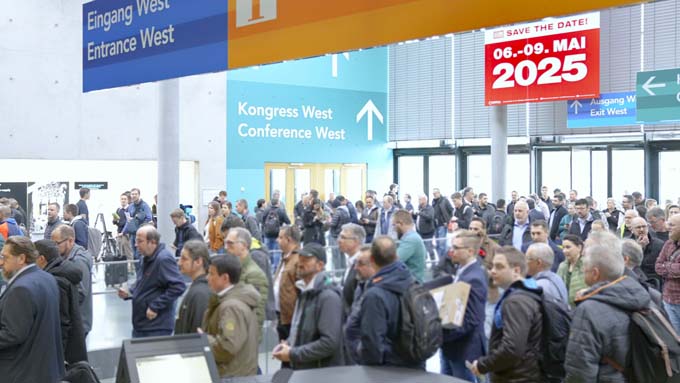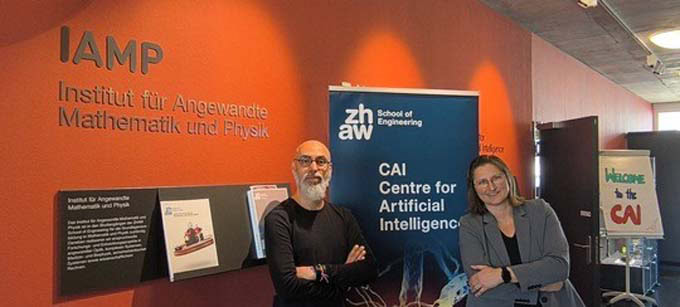Flow instead of frustration: Strengthen measures against IT disruptions in digital workplaces
A survey shows that manufacturing companies want to take more account of the user's perspective. Many respondents from the mechanical and plant engineering sector introduce as few new applications as possible in order to avoid problems.

The high importance of Digital Employee Experience (DEX) has arrived in the mechanical and plant engineering and industrial production sectors. This is shown by a survey conducted by Nexthink among 300 IT experts from six industries in Germany, Austria and Switzerland. The study was conducted in May 2021 by the independent market research company Sapio Research. For the majority (industrial production 81%, mechanical and plant engineering 70%), the topic of DEX plays an important role and is to be driven forward with a team or employees specifically responsible for it (industrial production 76%, mechanical and plant engineering 66%). The main focus is on measures against IT disruptions.
Systematically and with a high level of automation, resolve IT faults more quickly
Manufacturing companies in particular are planning comprehensive measures for disruption-free digital work environments. 87 percent (average 81%, mechanical and plant engineering 75%) will use systematic processes and tools with a high degree of automation to accelerate troubleshooting in digital workplaces.
To measure the quality of digital workplaces, metrics and key performance indicators are on the agenda at 85 percent of manufacturing companies, according to the Nexthink study (average 76%, mechanical and plant engineering 72%). The picture is similar for the plan to use a central management platform for the IT help desk that covers everything from ticketing and user communication to reporting, analysis and troubleshooting guidance.
Predict and prevent IT disruptions with predictive analytics
What are the causes of IT disruptions? To find answers to these questions, 85 percent of the manufacturing companies surveyed (average 75%, mechanical and plant engineering 68%) plan to use an integrated system that correlates data from the IT back end with the service desk management platform.
Predictive analytics technologies such as big data, artificial intelligence and machine learning are also high on the industrial production agenda at 81 percent to predict or prevent potential disruptions (average 76%, machinery and equipment 75%).
Majority lives with compromises in the digital workplace
The measures are a logical consequence of the fact that companies have so far tended to wait passively for IT disruptions instead of avoiding them proactively and with a high level of automation from the outset. A critical aspect here is that the majority of the companies surveyed live with many compromises in the digital workplace (industrial production 70%, mechanical and plant engineering 62%). In addition, many faults occur repeatedly (industrial production 46%, mechanical and plant engineering 55%) and usually take a long time to rectify (industrial production 57%, mechanical and plant engineering 58%).
In the event of IT disruptions, the situation of users is unnecessarily complicated
The situation is also made unnecessarily difficult for users. They are often left in the dark as to how long a disruption will last (Industrial Production 70%, Mechanical and Plant Engineering 66%) and the IT self-service portal often proves not to be very helpful (Industrial Production 48%, Mechanical and Plant Engineering 62%). In addition, users are inadequately informed about major or planned impairments to the digital workplace (Industrial Production 85%, Mechanical and Plant Engineering 77%). Frustrating from the user's perspective is that although employee feedback is obtained, this usually does not lead to improvements (Industrial production 54%, Mechanical and plant engineering 70%).
Often abandonment of new applications due to possible additional problems
The existing shortcomings in the IT experience of employees are particularly evident with regard to the introduction of new applications. A full 91 percent of respondents from manufacturing companies believe that more or better assistance should be made available for new applications (Machinery and Plant Engineering 81%). To make matters worse, end users avoid calling the ticket hotline when they have problems with new applications (industrial manufacturing 57%, mechanical and plant engineering 72%). The result: as few new applications as possible are introduced to avoid problems, as confirmed by 59 percent of respondents from industrial production and a full 75 percent from mechanical and plant engineering.
DEX and the user perspective gain importance
The results of the Nexthink study show that the dynamic development of digitization is also bringing the topic of digital employee experience to the fore among companies. 81 percent from industrial production and 83 percent from mechanical and plant engineering say that this topic will have high priority in their company. And the manufacturing companies (80%) in particular want to take greater account of the user's perspective - an aspect that is significantly less in focus in the mechanical and plant engineering sector at 55 percent.









